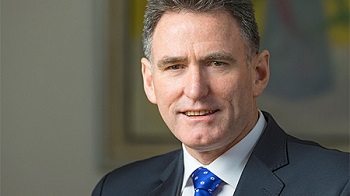RBS profits down as Brexit bites

Ross McEwan
Royal Bank of Scotland has today reported profits of £707m profit for the first three months of the year, which was down from £808m for the same period last year, a downturn the Edinburgh-based lender said can be attributed to the impact of Brexit uncertainty on near-term growth.
The bank’s profit margins were also hit by tougher competition in the mortgage market hit in the first quarter, while its investment bank also performed badly over the period, with income down 41.4 per cent on the previous year.
But the still 62 per cent state-owned, bailed-out bank said it is the spectre of Brexit that continues to be the major drag on the business and will continue to delay borrowing decisions making it “likely to make income growth more challenging in the near term”.
A day after chief executive Ross McEwan announced his intention to quit after five years at the helm of the bank, RBS said operating profit before tax was £1,013 million, compared with £1,213 million in Q1 2018 primarily reflecting £265 million lower income, partially offset by £73 million lower operating expenses.
RBS said it remains on track to meet its £300 million cost reduction target this year.
A defiant Mr McEwan, said: “This is a solid set of results set against a highly uncertain and competitive backdrop. We continue to support our customers through this Brexit uncertainty while investing and innovating in digital services to meet rapidly changing customer needs.”
Chairman Howard Davis added: “In 2018 the bank’s financial performance was good, despite an uncertain economic outlook and a highly competitive environment. Bottom line profits were more than double what we achieved on our return to profitability in 2017. We can also point to a very robust capital position, with Common Equity Tier One capital of over 16 percent, the strongest position of all the major UK banks.”
CET1 ratio of 16.2 per cent, which excluding the impact of IFRS 16 ‘Leases’ and a 2p dividend accrual, represents an underlying increase of 30 basis points in the quarter.
Meanwhile, Alison Rose, who was recently promoted to deputy chief executive of the bank, has been tipped as the leading internal candidate to replace Mr McEwan who now has to see out a 12 month notice period.



